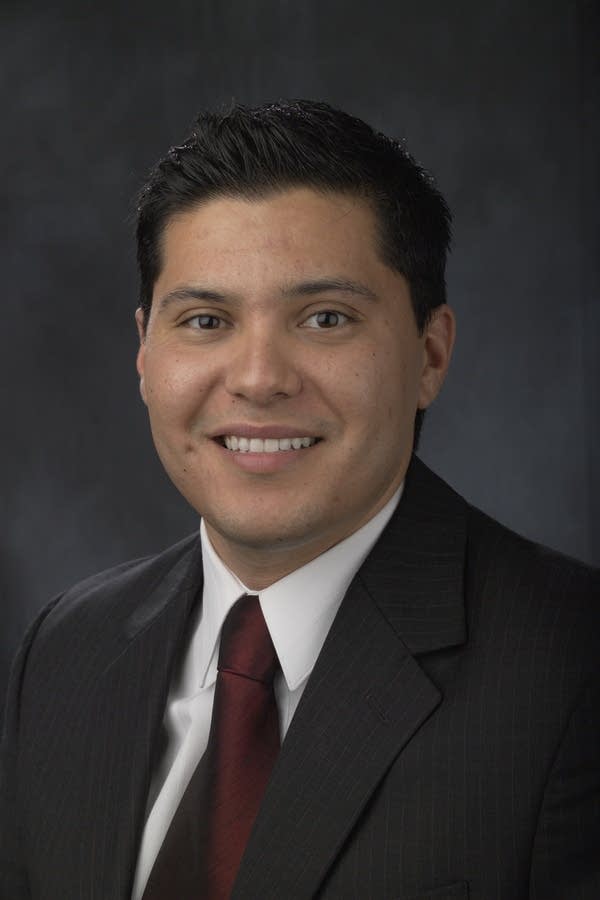Minnesota's Latino advisory council celebrates 30th anniversary
Go Deeper.
Create an account or log in to save stories.
Like this?
Thanks for liking this story! We have added it to a list of your favorite stories.

Thirty years ago this fall, Jose Trejo was chosen to lead the Spanish Speaking Affairs Council -- as it was called back then. The group's mission was to advise the governor and the legislature on issues affecting the Latino community in the state.
But since the beginning, Trejo said that was easier said that done. The challenge was getting the Latino community to understand the council's role.
"One of the biggest misnomers, or misinterpretations of the council at that time, was that the council represented the people," said Trejo, 66, who now lives in Wisconsin. "The council was not elected by the people. It was selected by the Governor. They really didn't represent the community... However, the Chicano-Latino community felt that the council represented them."

Confusion over how to define the role of the council never really went away. Some in the community say that's made the council less relevant to many Minnesota Latinos.
Turn Up Your Support
MPR News helps you turn down the noise and build shared understanding. Turn up your support for this public resource and keep trusted journalism accessible to all.
Longtime activist and St. Paul resident Gilbert de la O has seen this tension firsthand.
On a recent morning, De la O drove around St. Paul's west side, the heart of the city's Latino community.
He spoke frankly about the council, which he served on for four years, and said it could have been more aggressive in pushing for legislation through the years.
"I think anytime we have an opportunity to be up with Legistuature, where laws are enacted, where legislation is made, I think if we can have a place in that table, I think it's important," said de la O, 63. "But once we're at that table, we shouldn't be afraid to say that we don't like what's being served and this is what we think needs to be served."
Despite the debate over the role of the council, its efforts have managed to influence some legislation through the years.
"Today, I think the issues that are important to the Council are issues that are important to everyday Americans, to everyday Minnesotans."
In its early days, the group focused almost exclusively on the issue of education.
The Legislature eventually approriated $3 million to create a bilingual program throughout the state, according to Trejo.
The council also tackled migrant housing and workers' rights. And it pushed through an employment program for Latinos throughout state agencies.
Trejo said that program started in 1978 and within a year-and-a-half, it helped double the number of Latinos working in government, from 92 to 180.
The agency's leaders saw that as a step in the right direction, even though it represented less than one percent of Latinos living in the state at the time.
Another gain: by 1980, two Latinos had been elected to the state Legislature - Sen. Conrad Vega and Rep. Frank Rodriguez.
But despite these small victories, the council also faced its share of controversy over issues of racism, improper conduct of its members and the council's priorities. This led to internal and external splintering among Latino factions.
Both past and present leaders agree the tension pointed to the question of the council's role in the community.
"Most people think that CLAC is to be doing everything that's Latino related," said Rogelio Munoz, who took the job as the council's tenth executive director two years ago.
"Our role is not to organize protests or marches. Our goal is not to welcome every Latino to the state," Munoz said. "Our goal is very specific - to provide the legislature, to provide the governor with policy recommendations and information on what are the critical issues that are impacting the Latinos community."

In many ways, the council's growing pains have reflected the state's changing Latino community.
Since the early 1920s, Chicano-Latinos have migrated to Minnesota, lured mainly by agricultural jobs.
After WWII, the state also recruited migrant workers through the Braceros Program, which was established by the federal government to allow contract laborers from Mexico into the United States to meet the shortfall of domestic agricultural workers.
More recently, a new wave of Latinos has moved to the state to attend college or pursue jobs in the private sector.
The Census estimates nearly 206,000 Latinos currently live in Minnesota. That's why Munoz sees his job as the council's director, as more important than ever.
He says it's time to be more aggressive and tackle hot-button issues like immigration and workers' rights, as well as mainstream issues, like economic development and health care.
"Today, I think the issues that are important to the Council are issues that are important to everyday Americans, to everyday Minnesotans," Munoz said.
He added that the council will focus specifically on health care issues during the 2009 legislative session.
Dear reader,
Your voice matters. And we want to hear it.
Will you help shape the future of Minnesota Public Radio by taking our short Listener Survey?
It only takes a few minutes, and your input helps us serve you better—whether it’s news, culture, or the conversations that matter most to Minnesotans.





